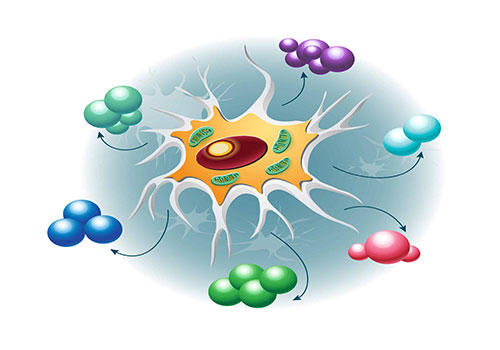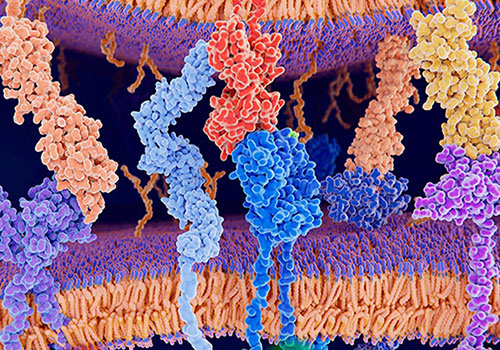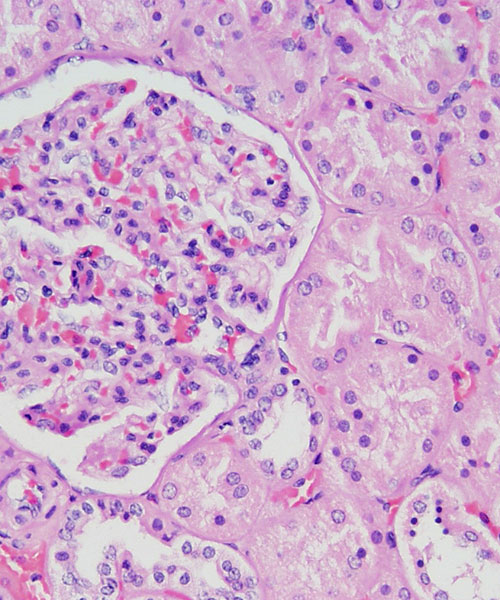Exosome Cargo
During the formation of multivesicular bodies, various molecules are selectively incorporated into the exosomes. These can include proteins, lipids, and genetic material (such as RNA). The specific cargo loaded into exosomes depends on the type and condition of the cell.


Release of Exosomes
Exosomes are released from the cell when the multivesicular bodies fuse with the cell’s plasma membrane. This releases the exosomes into the extracellular space.
Intercellular Communication


Cellular Response
The internalized exosomes deliver their cargo to the recipient cells, potentially influencing their function. The transferred molecules may affect signaling pathways, gene expression, and cellular behavior. This communication mechanism is believed to allow cells to coordinate their activities and respond to changes in their environment
Physiological and Pathological Functions
Exosomes play essential roles in various physiological processes, including immune response regulation, tissue repair, and development. They are also implicated in pathological conditions such as cancer, neurodegenerative diseases, and inflammatory disorders.
Researchers are exploring the potential of exosomes for therapeutic purposes, such as drug delivery and regenerative medicine, given their ability to transport bioactive molecules between cells. However, it’s important to note that the field of exosome research is rapidly evolving, and our understanding of their functions and applications continues to expand. There are currently no exosome therapies or products approved for human use in the United States.

